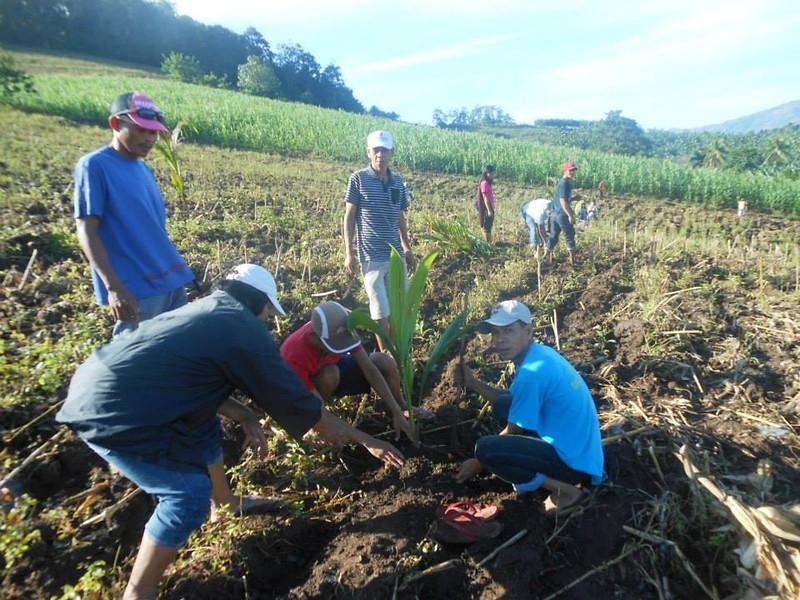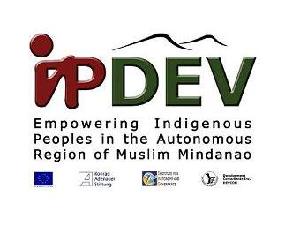Asset Publisher
EMPOWERING INDIGENOUS PEOPLES – IPDEV
Asset Publisher
Title of the action:Recognition of the Rights of the Indigenous Peoples in the Autonomous Region in Muslim Mindanao for their Empowerment and Sustainable Development
Number and title of lot:Lot 1 Non-State-Actors
Location(s) of the action:80 barangays in the provinces of Maguindanao and Lanao del Sur in the Autonomous Region in Muslim Mindanao, Philippines
Partner 1:Institute for Autonomy and Governance (IAG)
Partner 2:Development Consultants, Inc. (DEVCON)
The project ‘Recognition of the Rights of the Indigenous Peoples in the Au¬tonomous Region in Muslim Mindanao for their Empowerment and Sustain¬able Development’, or short IPDEV, was launched in February 2012 and is imple¬mented by the consortium of the KAS Phil¬ippines, it’s institutional partner Institute for Autonomy and Governance (IAG) and Development Consultants Inc (DEVCON). It is carried out for a three-year period and is co-funded by the EU and the Ger¬man Ministry for Economic Cooperation and Development (BMZ) through the KAS.
PROJECT BACKGROUND
The Indigenous Peoples’ Rights Act (IPRA) was introduced in 1997 and granted fundamental rights such as ancestral do¬mains, cultural integrity, self-governance and empowerment as well as social justice and human rights to the indigenous peo¬ples (IP) in the Philippines. However, in the Autonomous Region in Muslim Mindanao (ARMM) marginalized ethnic groups have not been able to fully enjoy and exercise these fundamental rights as the IPRA has for the longest time been considered invalid in the ARMM. The IPDEV project addresses these discriminating political and administrative structures and seeks the formulation as well as the implementation of Ancestral Domain Sustainable Development and Protection Plans (ADSDPP) as an instrument of empowerment that should, in turn, be integrated into local develop¬ment plans.
The project is active in 80 barangays in the provinces of Maguindanao and Lanao del Sur in the ARMM and works together with four major tribes: the Teduray, the Lambangian, the Dulangan Manobo and the Higaonon. IPDEV’s activities focus on capacity building for the empowerment and strengthening of IP self-governance as well as advocacy for socio-legal and administrative reforms in the ARMM. The overall objective of IPDEV is the development of IP communities in the ARMM that recog¬nize and practice the rights of minorities at all levels and the improvement of living conditions of the most marginalized population in the ARMM.
Two years into the project, major aims have already been met. The objective to gather cultural information and baseline data and to create cultural maps has been successfully completed. This data built the foundation for the successful formulationof the Ancestral Domain Sustainable Development and Protection Plans (ADSDPP), that have been approved and adopted by three of the tribes – another milestone for the IPDEV project and thus for the IPs. The project has successfully carried out trainings and seminars to capacitate and equip the indigenous peoples in ARMM with fundamental and rights-based knowledge and skills towards the promotion of indigenous knowledge systems and practices and self-governance which shall eventually increase their active participation in local governance. Trainings to enhance the IP’s knowledge and skills in regard to sustainable livelihoods and natural resource management have been carried out as well. At the same time the project team is actively carrying out advocacy actions for socio-legal and administrative reforms and hopes to see the implementation of the ADSDPPs as well as their integration in the local development plans.
With the help and facilitation of IPDEV, IP leaders in the ARMM - for the first time ever - have the chance to get together regularly to formulate and bundle their interest and – just as importantly - make them heard. Numer¬ous consultations and public forums on the Framework Agreement on the Bangsamoro (FAB), signed in October 2012, were organised by the project and IP views on the FAB were raised in the Regional Consultative Assembly. It came as no surprise when, in March 2013, the IPs in the ARMM and the Philippine Government endorsed and appointed then IPDEV Advocacy Specialist Ms Froylin Mendoza as member of the Transition Commission (TC), which is tasked to work on the formulation of the Basic Law for the Bangsamoro political entity, replacing the ARMM. Her appointment to the TC ensures that the IPs are represented and that their rights are heard and ad¬vocated for in this decision making body.
Contact:
IPDEV Coordination Office
5/F Cambridge Center Bldg.
108 Tordesillas cor. Gallardo Sts.
Salcedo Village, Makati City
Metro Manila, Philippines
Tel. +63 (0)2 403 7697
Fax +63 (0)2 893 6199
Mob. +63 (0)915 139 1449
IPDEV Implementing Office
Institute for Autonomy and Governance
Notre Dame University Compound
Notre Dame Avenue
Cotabato City, Philippines
Phone: +63 (0)917 314 0447
Fax: +63 (0)64 552 2071
Email: miriam.fischer@kas.de
Website: http://iag.org.ph/ipdev/
Facebook: https://www.facebook. com/#!/ip.dev.1
For your further information, please find hereafter our newsletters
http://www.kas.de/philippinen/de/publications/37017/
http://www.kas.de/philippinen/de/publications/36954/
or visit the website of KAS Philippines:





